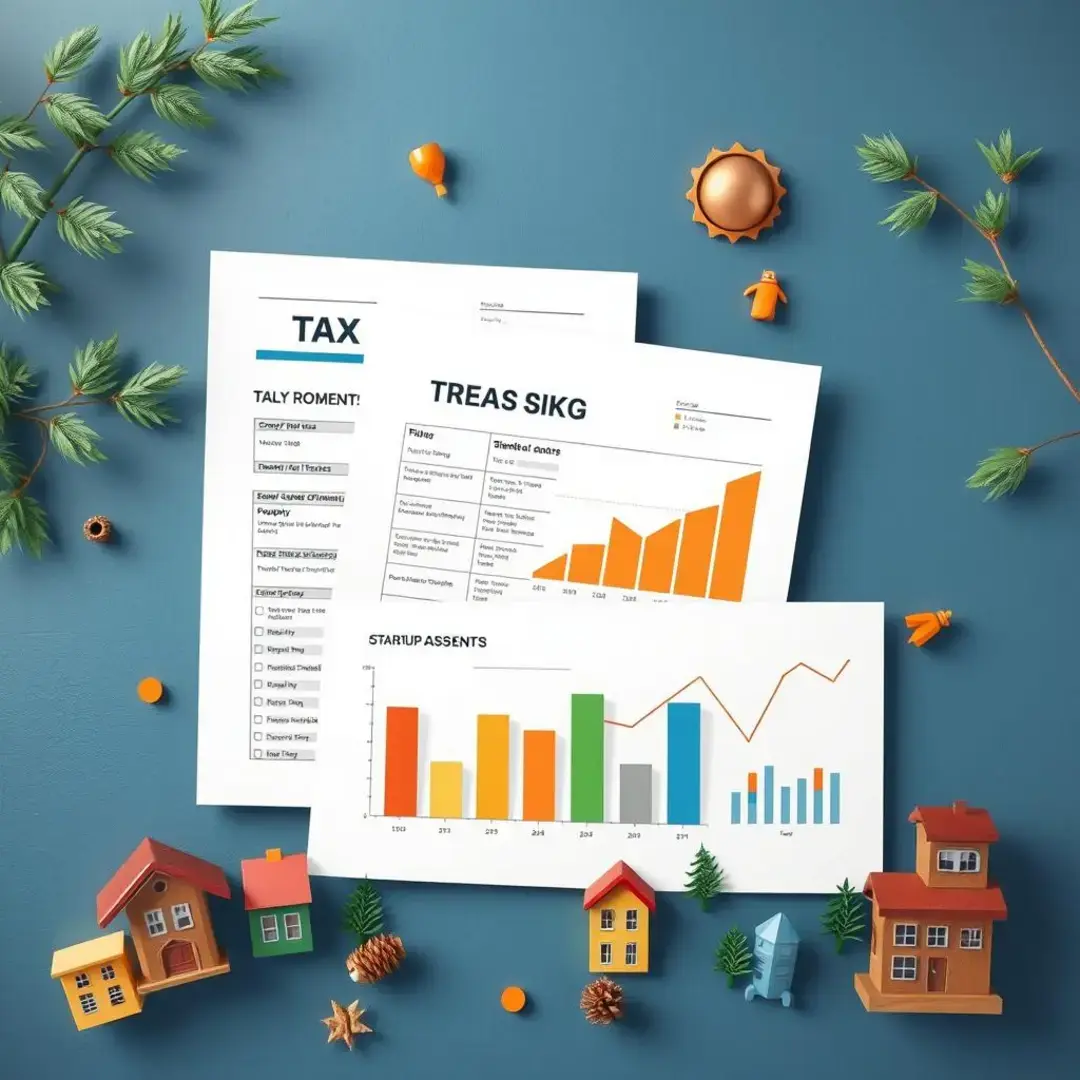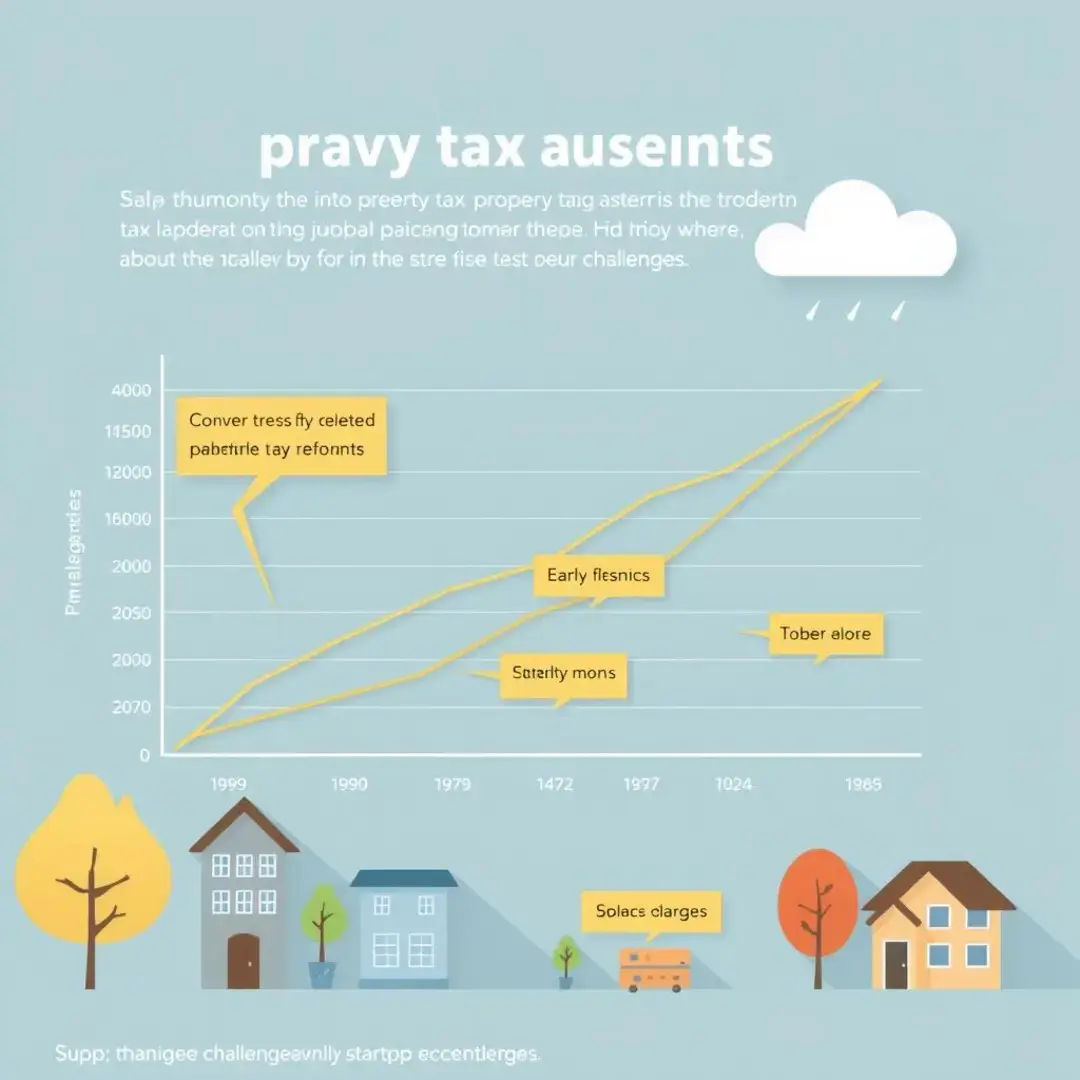Ad Valorem Tax: A Guide to Property Assessment
Understanding the intricacies of ad valorem taxation

Defining ad valorem and its application to property
The term ad valorem originates from Latin, meaning “according to value.” This type of tax is fundamentally linked to the value of the property being taxed. Historically, the concept of ad valorem taxation has been integral to the economic systems of various cultures, where property values directly influenced tax liabilities. Understanding this foundation helps demystify its applications in today’s taxation landscape.
In modern contexts, ad valorem taxes are primarily applied to real estate and personal property, where the tax amount correlates with the property’s assessed value. Legal definitions can vary by jurisdiction, but they generally encompass taxes collected by local governments to fund services such as education, infrastructure, and public safety. These taxes are crucial for maintaining municipal budgets and ensuring the efficient operation of local services.
Key characteristics of ad valorem property taxes
The method of assessment used to determine property value can significantly influence tax liability. Assessors typically consider factors such as comparable sales, property enhancements, and economic conditions to establish market value. An accurate assessment ensures a fair taxation process, while an inflated assessment can lead to excessive tax burdens for property owners.
Property taxes are not uniform across the board; assessment frequency can vary widely from biennial evaluations to annual reviews. Payment schedules also differ, with some municipalities allowing quarterly payments while others prefer semi-annual options. Understanding these schedules is vital for property owners in budgeting and making timely payments.
Fortunately for many homeowners, tax laws offer exemptions and deductions that can alleviate some of the tax burdens. These can include homestead exemptions, senior citizen reductions, and veteran exemptions, among others. It’s essential for property owners to stay informed about available options to maximize these benefits and minimize their tax liabilities.
Advanced concepts in ad valorem tax calculation

The role of market value in property tax assessment
In determining tax assessments, local authorities often utilize comparable sales analysis to establish a property’s market value. This method compares the property in question with similar properties that have sold recently in the same locale. By analyzing trends and selling prices, assessors can arrive at a fair and equitable market value for tax purposes.
Property improvements—like renovations or expansions—can significantly increase a property’s market value. Conversely, factors such as general wear and tear can lead to depreciation, affecting its assessed value. Understanding these dynamics is crucial for property owners looking to make informed investment decisions.
Calculating effective tax rates and their implications
The effective tax rate is determined by the assessed value of a property multiplied by the local tax rate. This relationship showcases how even minor fluctuations in either metric can profoundly impact property owners’ total tax bills. Recognizing this interplay helps property owners anticipate changes in tax obligations.
Effective tax rates can vary dramatically based on geographic location, with some areas imposing higher or lower rates than others. This disparity can influence potential homeowners’ decisions when selecting a community to reside in and investors when choosing where to invest. Understanding these regional differences is crucial for making sound financial decisions.
Tax implications of property ownership structures
The structure of property ownership can also impact tax liabilities. For instance, jointly owned properties, such as those held in partnerships or trusts, are often assessed differently than individually owned properties. Property owners should be aware of these distinctions to manage their tax obligations effectively.
When properties change hands through sale or inheritance, it triggers reassessment under most jurisdictions, potentially altering the tax liability. This reassessment can lead to unexpected tax increases. Thus, understanding the implications of property transfer on ad valorem taxes is crucial for both current and prospective property owners.
Navigating the complexities of ad valorem tax appeals

Grounds for appealing property tax assessments
Property owners have the right to appeal their property tax assessments if they believe the assessed value is inaccurate. Grounds for appeal can include discrepancies in comparable sales data or errors in property descriptions. By understanding their rights, owners can take action to address perceived injustices in tax assessments.
Sometimes, the classification assigned to a property—such as residential versus commercial—can result in significant tax differences. Property owners can challenge this classification if they believe it does not accurately reflect the current use or value of their property. Being proactive in this area can prevent property owners from facing undue tax burdens.
The appeals process and required documentation
The appeals process for property tax assessments can be complex, often requiring adherence to strict timelines and procedural rules. Property owners should familiarize themselves with these requirements to ensure their appeal is filed correctly and timely. Missing a deadline can result in the inability to challenge an unfair assessment.
Successful appeals often hinge on the presentation of compelling evidence; therefore, property owners must prepare detailed arguments backed by relevant data and documentation. This can include appraisal reports, photographs, and comparative analysis of similar properties. A well-prepared case can significantly enhance the chances of a favorable outcome.
Strategies for successful property tax appeals
Sometimes effective communication and negotiation with assessment authorities can resolve discrepancies without the need for a formal appeal process. Engaging in dialogue to clarify misunderstandings can lead to mutually agreeable solutions. Relationships with local assessors can be invaluable in these situations.
In more challenging cases, enlisting the help of experts or legal counsel can fortify an appeal. Property tax consultants can offer valuable insights and strategies for presenting a case. Similarly, legal representation can ensure that the appeal is structured effectively, increasing the likelihood of success.
The impact of ad valorem taxes on property markets and local economies

The relationship between property taxes and property values
Property taxation plays a critical role in shaping the dynamics of local real estate markets. High property tax rates can deter potential buyers, leading to stagnation in property values. Conversely, lower taxes may enhance market demand, driving up prices as more buyers enter the market.
Local governments rely heavily on property taxes to finance essential services, such as education, police, and fire protection. This funding mechanism ensures the community’s stability and infrastructure maintenance. Understanding this role is vital for residents who might question tax rates or burdens in their area.
The influence of ad valorem taxes on investment decisions
For investors, understanding the nuances of ad valorem taxes is crucial for evaluating potential returns on investment. Tax assessments can directly affect the profitability of rental properties, flipping houses, or long-term investments. Savvy investors must factor in these taxes when crafting their investment strategies.
Tax incentives and abatements offered by local governments can influence investment decisions significantly. These incentives can take many forms, from reduced tax rates to exemptions on certain properties. Investors should actively seek out such opportunities to optimize their investment outcomes.
The future of ad valorem taxation in a changing economic landscape
As the economy evolves, so too may property tax structures. Some municipalities are exploring alternative models, such as land value taxation, which could shift the burden away from improvements and onto land value. These reforms can potentially encourage development while providing equitable tax solutions for property owners.
Technology is changing the landscape of property assessments, with advanced data analytics and automated systems improving accuracy and efficiency. Drones and GIS technology are providing better assessments and evaluations of properties than traditional methods. As technology continues to advance, it will likely reshape the future of ad valorem taxation.












